Let me climb up this ladder, and … whoops, missed a rung … ah, here I go. I’m shouting from the rooftop:
Happy Father’s Day!
My dear dads, granddads and men who care for others, this is your day! We humbly thank you for all that you do.
Often, my teachings are more weighted toward my female audience because moms and grandmoms make up the overwhelming majority of my readers. But I hope you don’t interpret that to mean I appreciate you any less.
Men are our builders, inventors, warriors, partners, protectors, strength when we are depleted, and the love that fills our hearts. Indeed, we celebrate you!
So, today, I would like to mention a few of the incredible men who helped create this living paradigm of homeopathy. (Plus, I will share an equally incredible homeopathic medicine that many men may find useful.)
No digital list of great men in homeopathy would be worth its pixels without first crediting Dr. Samuel Hahnemann for discovering, researching and refining this unparalleled medical paradigm.
Dr. Hahnemann was a German physician and scholar whose practice served aristocracy and royalty. Disappointed in the results of the medicine he and his colleagues were using at the time, Hahnemann left his prominent practice. He discovered a profound natural law, The Law of Similars, which became the foundation for homeopathy.
The Law of Similars asserts any substance that can cause symptoms when given to a healthy person can help to heal those experiencing similar symptoms when given in a very minute amount.
Until around the 1940s, homeopathy occupied a central place in American medicine. In fact, in Washington, D.C., only one memorial is dedicated to a physician — the founder of homeopathy, Dr. Samuel Hahnemann.
German doctor, Constantine Hering, was charged with writing a book to discredit homeopathy. However, the more he investigated, the more he became convinced that homeopathy was a valid, effective medical paradigm. He then became one of homeopathy’s most ardent champions.
In the 1830s, he emigrated to the United States and became the Father of American Homeopathy. Yes, upon scientific investigation, a “non-believer” became the Father of Homeopathy! In concert with several other doctors, Hering founded the first homeopathic medical school in the United States and also published several homeopathic journals.
Dr. James Compton Burnett began his medical career in Great Britain as a conventional doctor; however, after trying homeopathic methods, he was converted. He was also one of the first medical professionals to address concerns that vaccination may trigger illness!
Dr. Burnett was a prolific author, and his book “Fifty Reasons for Being a Homeopath” is one of my favorite reads. In fact, I am reading — and commenting — on it now in videos I create for my Mighty Members. In this work of literary and educational excellence, Dr. Burnett records letters written to an allopathic doctor who was particularly skeptical of homeopathy.
Indeed, his fifty reasons for being a homeopath still hold true today.
To quote, Dr. Burnett, “Believe me, we homeopaths are not what you have been taught to think; we have no secrets; we aim all of us, each according to his ability and in his own way, to advance the true interest of our beneficent art, and our most earnest desire before God and man is to teach all we know to all knowledge-seeking lovers of truth.”
Dr. John Henry Clarke, the author of “A Dictionary of Practical Materia Medica” and a renowned homeopathic doctor in his own right, said of Burnett, “It is not too much to say that during the last twenty years Burnett has been the most powerful, the most fruitful, and the most original force in homœopathy.”
At the age of 93, the indomitable Joe De Livera — known by the moniker “Joepathy” — lives in Sri Lanka, which allows him familiarity with epidemics and conditions that don’t always affect the Western hemisphere. He is a unique, well-regarded figure in the world of homeopathy and has a stellar reputation for helping tens of thousands of people across the globe through his online presence.
His highly successful technique differs slightly from our usual method of placing pillules in the mouth. Joe De Livera recommends placing a dose of liquid homeopathic medicine in about two cups of water and then utilizing about one tablespoon as a dose. He discusses his technique thoroughly in an interview lesson for The Academy of Practical Homeopathy®, but you can read more about his method for free in my blog post When in Doubt: Arnica.
And my Mighty Members can also learn about his successful approach to the recent pandemic in Memo to Mighty Members #63, archived on your members-only page.
I cannot close this list of Great Men of Homeopathy without my dear mentors and friends, Drs. Prasanta and Pratip Banerji of Kolkata, India. Their immense body of work resulted in the development of reproducible, condition-specific homeopathic medicines, which have revolutionized homeopathy: the Banerji Protocols.
Indeed, their scientific research spans well over 150 years, encompassing their lifetimes and also the lifetimes of the familial generations preceding them. This data collection center is unrivaled in the world today, not only in the homeopathic world but the world of medicine in general. When I studied with them, their patient database had more than 40,000 cases with over half-a-million visits recorded!
They’ve presented their findings at the National Institute of Health, Anderson Cancer Institute, Roswell Cancer Institute, Columbia University, The University of San Diego, St Luke’s Hospital and other distinguished institutions across the globe.
Assisted by their senior doctors, the Banerjis saw approximately 1,200 patients a day in their clinic, from royalty and heads of state to the poorest of India’s citizenry. No one was turned away.
I invite you to read the tributes I wrote to both Dr. Prasanta Banerji and Dr. Pratip Banerji.
Especially today, on Father’s Day, I think of Dr. Prasanta, who was affectionately and reverently referred to as “Baba,” meaning esteemed father. And then my mind turns to Dr. Pratip whose entire countenance would light up when his young daughter came into his office.
Indeed, they were admirable fathers as well influential homeopaths.
Well, my friends, I promised to share a great homeopathic medicine for men, didn’t I?
Berberis vulgaris is a valued kidney remedy. Consequently, it’s another homeopathic medicine to consider for kidney conditions caused by gout (elevated uric acid).
They used to say that gout afflicted men who drank too much beer, ate too much meat and were sedentary. But updated information has indicated that’s not necessarily so! (Although, too much beer may contribute to gout because alcohol causes inflammation and other issues. Sorry, Dad!)
I’ve already discussed homeopathic considerations for the painful joint pain caused by gout in The Disease of Kings (and Commoners). However, pain located in the kidneys, ureters and even the lower back may indicate gout-induced kidney stones! Then Berberis vulgaris 6 (or in mother tincture) — employed twice daily — may be a solid homeopathic choice for sufferers to consider during these painful events.
However, as always, we halt the medicine if no improvement is observed after giving it due time to act, and we certainly stop utilizing the medicine once the condition becomes very much better.
Indeed, thanks to these great men — and many others not mentioned — homeopathy is the best medicine in the world, and I simply won't hear another word about it!
Pass it on to all the great men in your life!
Warmly,
1 See page for author, Public domain, via Wikimedia Commons
P.S. Men, my Gateway to Practical Homeopathy®: A Guided Study Group Curriculum is not just for moms and grandmoms. Indeed, we have wonderful men — fathers and even boys — who have joined our growing ranks. If you’re interested in joining a study group or forming your own, please reach out to my office through this form. We’ll connect you with an experienced group leader who will be happy to assist you!
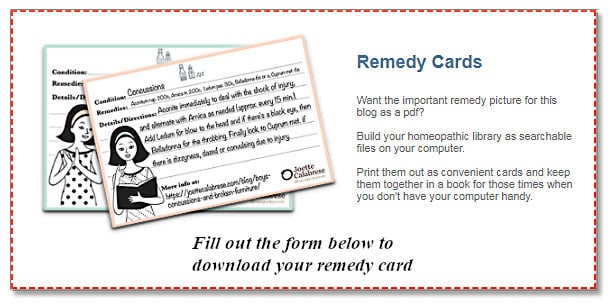


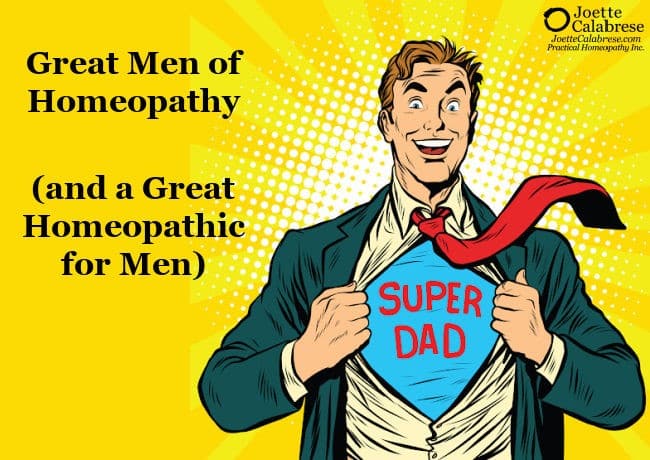
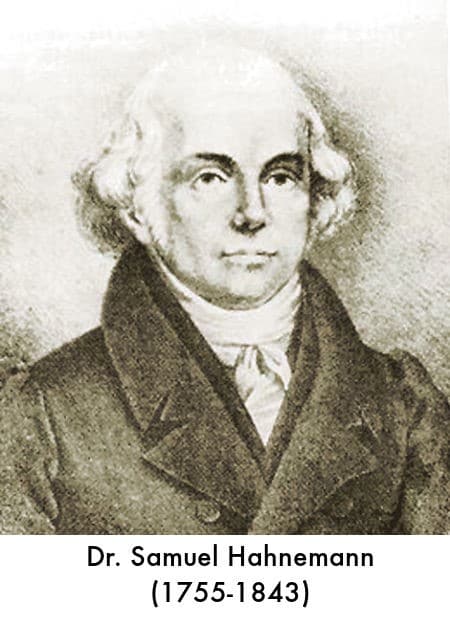
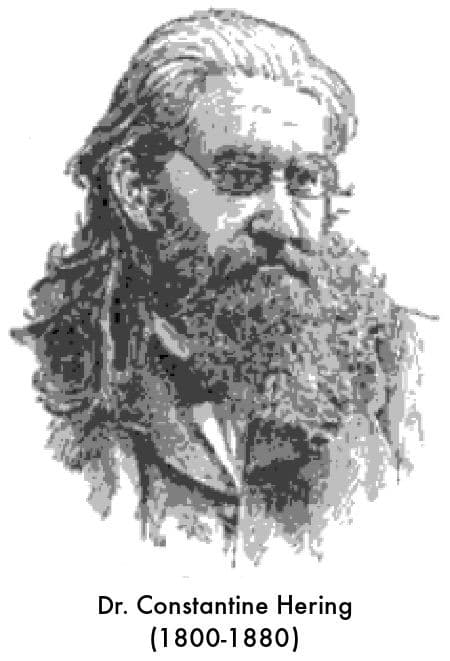
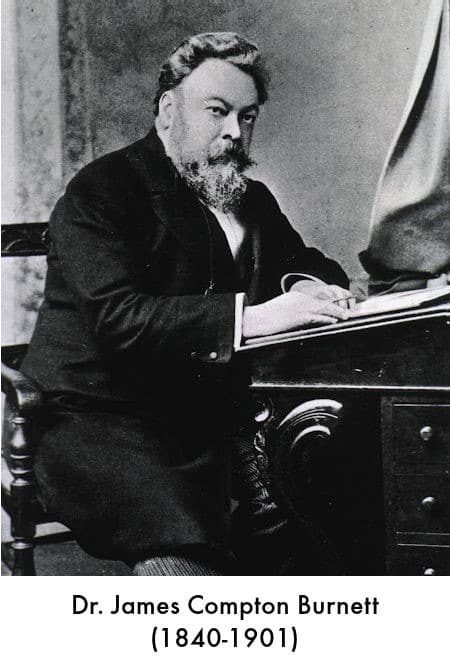
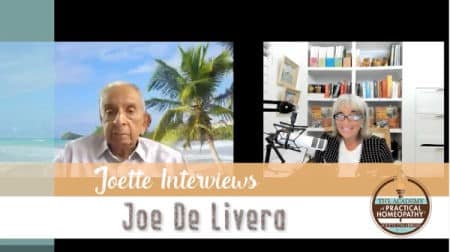
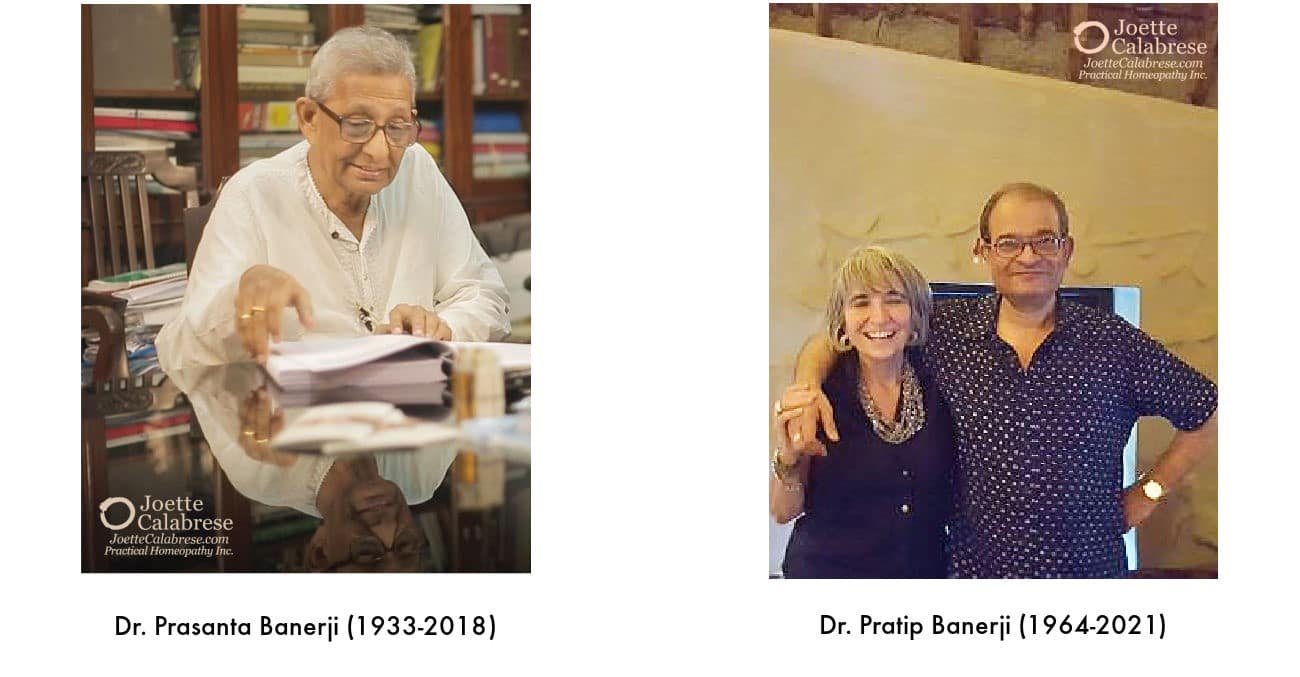



Very interesting article as usual. Enjoyed learning about these men of homeopathy who, except for Hahnemann, was unfamiliar with. However, disappointed that you didn’t mention Dr.Royal Copeland. I wish I would have been inclined to study homeopathy when I was young. I think I would have enjoyed being a homeopath.
There are so many it was hard to choose but Dr. Copeland would have been an interesting choice.
Would this be a good remedy to treat kidney stones caused by any reason, or only gout induced kidney stones?
Kidney stones no matter the exciting cause.
As a woman prone to calcium oxalate kidney stones, I’ve been taking berberis vulgaris 30 as needed for kidney pain in both kidneys for the past year or so. But as I had not discovered it until after passing my last kidney stone, I can’t say how effective it is for that extreme pain. The arnica 1M I was taking in the E.R. did not help but neither did the morphine they gave me. They ended up giving me ketorolac to ease the pain and reduce the swelling in my ureter so the stone could pass. So perhaps adding something for swelling would be in order when passing a stone. Maybe apis. I haven’t had time to research it yet.
Can you use Berberis vulgaris for a cat who has kidney disease?
If the symtpoms fit.
But the way to know is to read up on Berberis in a materia medica such as Kent’s on line.
Joette, what a beautiful and fitting tribute to the wonderful homeopaths you are familiar with and have come to know… They had big hearts and truly wanted to help peoples suffering like you too !